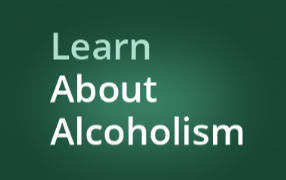Adult Children of Alcoholics
Adult children of alcoholics often carry baggage from their childhood into their adult years. There are many recognizable characteristics of adult children of alcoholics. If you grew up in a family in which someone had a drinking problem, you may recognize some of these characteristics in yourself.
You may have wondered what caused you to feel and act this way. Well, it is likely due to your upbringing. There is help available, but lets first take a look at some of the characteristics.
Characteristics of Adult Children of Alcoholics
Common characteristics include:
- Difficulty trusting others.
- Difficulty expressing feelings.
- Low self-esteem.
- Unable to cope with criticism.
- Frightened by angry people.
- Fear of abandonment.
- Seeking relationships where you can take care of the other person.
- Constantly seeking the approval of others.
- Focusing on the needs of others to the extent of neglecting your own needs.
- Feel guilty standing up for yourself.
- Viewing yourself as a victim.
- Inability to set personal boundaries.
- Poor communication skills.
- Fear of authority figures – often avoiding or distrusting them.

A need for total order and structure in the environment because they lack self-control. Fear that you will lose control if your life is not totally under control. This can lead to hoarding as a way to feel secure and keep everything organized in your life when it may have been chaotic or disorganized growing up!
You may be compulsively neat, clean, orderly, fastidious and unable to relax even when things were messy as a kid. Adult children of alcoholic parents tend to avoid conflict by giving into others rather than confronting them directly about issues.
You may fear that you’re not able to handle stressful situations, so you avoid them at all costs. This often results in feeling overwhelmed and confused when you are faced with a problem, usually because of your inability to deal directly with it.
Many adult children of alcoholics have low self-esteem as children who grow up in homes where alcohol is present often feel inadequate (they don’t make enough money, aren’t successful enough, don’t look attractive enough). These feelings carry over into adulthood and they are left with the belief that they must be perfect for anyone else to love or accept them. In adult relationships, this leads to overly aggressive behavior as an attempt toward “perfection.”
Moreover, adult children of alcoholics often seek acceptance from others and tend to be people-pleasers. This is because they are used to being told they are not good enough. They also do not trust their own judgment and feelings, so rely on others’ opinions of them. In relationships, these people may be taken advantage of or feel like they are suffocating in the relationship as they get lost in trying to please their significant other.
Adult children of alcoholics constantly seek approval from others. They want everyone around them to approve of what they do and think – especially their parents, spouses, lovers or bosses. Many times, even after attaining adulthood, this can lead to feeling anxious about your decisions at work since you need a parent figure there for reassurance.
Feeling unworthy, these people often choose partners who are critical and demeaning because they feel it confirms what they already suspect about themselves – that they aren’t good enough no matter how hard they try. They feel defeated or inadequate and believe others must also think so even when there is no evidence that this is true.

Other Things to Know
Grown-up children of alcoholics often grow up to be alcoholics themselves, or they marry alcoholics. If not, they may show other symptoms of an addictive personality;for instance,
- they may be workaholics.
- They may have an addiction to excitement and engage in risk taking behaviors.
- They may function best in a “crisis mode.”
- They are often co-dependent in relationships.
- Relationships are often dysfunctional.
Adult children often behave as they did when they were children – as they had to when they were children. For instance,
- they don’t express their feelings.
- They weren’t allowed to express feelings as children, or were never taught to express feelings.
- So they don’t express them as adults, or don’t express them appropriately. We don’t mean to say that they behave childishly. They just don’t behave in a healthy manner.

Adult children may not even realize that their thoughts and behavior are unhealthy, at least not at first. When you grow up in a family where everyone behaves a certain way, you learn to think it is normal.
Then as an adult you begin to realize that others behave differently. Changing these thoughts and behaviors can be very difficult.
Remember that you didn’t choose these thoughts and behaviors. You learned them while growing up in your family.
You may not even be aware that they are symptoms of a dysfunctional family unless someone else points them out to you. Even then, it can be difficult to change them, but there is help available.
In the next section, we list some resources for adult children who want some help making changes in their lives.
The characteristics of adult children of alcoholics may show up in adult children of dysfunctional families, regardless of whether or not alcoholism was actually involved.
Adult children of alcoholics are often resistant to suggestions that they need help. Take into consideration that you were probably taught not to talk about your feelings or problems as a child. You may also have been taught not to trust others. This makes it difficult for you to open up, but it is the first step toward healing yourself.
Families in which there was abuse, in which children were not able to trust their parents to meet their needs, and/or in which children were forced to take on a “caregiver” role can produce the same effect as families in which alcoholism was present.
Are You Struggling Getting Over a Childhood with an Alcoholic Parent?
If you have childhood issues that stemmed from having alcoholic parent/s, please don’t be ashamed. We’re just asking you to be honest with yourself and your situation. Are you ready for a fresh start? Let’s begin your recovery journey today!
Resources:
There are 12-Step self-help groups available for grown-up children of alcoholics. These groups are modeled after Alcoholics Anonymous, and help adult children learn to accept responsibility for their own behavior and take back their lives.
There are two groups you can contact. First of all, there is a group called Adult Children of Alcoholics (ACA). You can look them up online, or contact them at 310-534-1815.
Then there is Al-Anon. Al-Anon is a group for family and friends of alcoholics. They have special groups for adult children. To find these groups, you can check your local phone book for Al-Anon, look online, or call 757-563-1600.
Self-help groups may not be enough, and individual counseling may be needed to help some people work through the issues from their childhood.
There are also a number of excellent books and workbooks for adult children. John Bradshaw is a well-known author and speaker on the topic. His books come highly recommended.

I am a Mental Health Counselor who is licensed in both New York (LMHC) and North Carolina (LCMHC). I have been working in the Mental Health field since 2015. I have worked in a residential setting, an outpatient program and an inpatient addictions program. I began working in Long Island, NY and then in Guelph, Ontario after moving to Canada. I have since settled in North Carolina. I have experience working with various stages of addiction, depression, anxiety, mood disorders, trauma, stages of life concerns and relationship concerns.
I tend to use a person-centered approach which simply means that I meet you where you are and work collaboratively to help you identify and work towards accomplishing goals. I will often pull from CBT when appropriate. I do encourage use of mindfulness and meditation and practice these skills in my own life. I believe in treating everyone with respect, sensitivity and compassion.
I recognize that reaching out for help is hard and commend you for taking the first step. We have professionals available who would be happy to help you move closer to reaching your goals related to your drinking concerns. You may reach these professionals by calling 877-322-2694.
